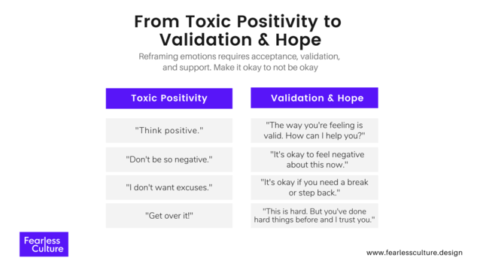In a relationship with little conflict, it’s easy to feel secure and confident. However, building resilience in tough times is essential. During times of change and uncertainty, building resilience can help better cope with everything because there is a need to embrace the process and adapt well in the face of adversity.
What is a “resilient relation“? It is a relationship that can withstand the stress of conflict and not fall apart, in my view as a communication and conflict specialist. Although many factors can determine how resilient someone is, it is also a fact that building yourself with resilience is easier said than done.
The quality of relationships with other people varies and influences how emotionally resilient you can be in the face of physical crisis or emotional exhaustion. Resilient relationships don’t walk on eggshells. They are flexible like a rubber band — they can be stretched and reassembled.
Healthy disagreement is fundamental for relationships to be strong.
The Times are Tough Right Now
Many of us have found that differences in belief about religion and politics can cause tensions with our family members, friends, and neighbors. These bonds can become weaker or irreparable if not managed with the right skills and intention.
Quick disclaimer: This article assumes that you seek a stronger relationship with someone who is safe and shares your interests. Please seek a professional if you are unsure about your safety or believe this is not the case.
5 Practices for Resilient Relationships
Resilient relationships are not something that happens by chance. They don’t happen overnight. While resilient relationships can look different, they share a common core. There are many ways to treat each other positively that keep relationships healthy. However, these five practices can help us build bonds that can withstand conflict.
- Being there for one another
- Being seen and seeing
- Sharing power
- Disagree well
- Take a break
Not following these practices will end or fracture the relationship. To build lasting relationships, you need to practice all five. You don’t need to do these things perfectly, but you must practice them to have resilience.
1. Being there for one another
It’s easy to surround yourself with people you agree with and demonize others in our digital media bubble. We need to interact with people from all walks of life if we want strong friendship groups, families, and communities. Although it may sound simple, we can only have solid relationships if we make time to get to know each other. Being intentional in these interactions means showing up.
2. Being seen and seeing
To see someone is to be open and curious about their inner world. To know, you must examine your conversation partners’ ideas, values, and beliefs. It will help you understand how they connect, even if you disagree. Viewing another person without letting go of our convictions and opinions is possible. However, it is possible to respect our boundaries. Seeing others is a way to honor their humanity and build a stronger relationships.
Being seen can be the flip side of the coin. We invite others to see us when we do the work of seeing them. Being seen is allowing someone to enter your world and letting you see the things that make you tick. It means being passionately and ethically clear about your stance while still being open to the possibility that your conversation partner might disagree with you. We should be aware of the signs of vulnerability and trust. It means someone can take our opinions and put them to the test, allowing us to share who we are and what has been for us.
THE BASICS
3. Sharing power
Sharing power is about practicing equality and avoiding dominance or control. Sharing passion means we create space for one another. We can build resilience and strength when conflicts arise when we give everyone space. It’s like adding fuel to the fire when someone feels they don’t have a voice or emptied power.
It can be challenging to see the consequences of how we use power, especially when we think we are right. Sharing passion isn’t about saying truths without caring for others or being concerned for their relationships. We risk our credibility and trust by failing to share power. Sharing power is about inspiring, not controlling, persuading, and not punishing.
Resilience Essential Readings
It is challenging to share power, especially for those who have been given a lot of privileges and are taught that they should have more ability than others. Resilient relationships are only possible if everyone has a seat at the table.
4. Disagree well
When relationships can withstand conflict and impasse, they are more resilient. We must learn to manage disagreements instead of running from them.
What does it mean to “disagree well?” What does it mean to “disagree well?” It means to disagree well:
- Give up on the need to solve. However, we want to have resilient relationships. In that case, it is crucial to focus on the stability of the relationship and its long-term health before we force an agreement or resolution.
- Great questions are best asked. You will be able to work like an archeologist, digging up meanings and nuances and handling everything with great care. It allows them to understand the complexity of another’s point of view so that they can communicate clearly and respectfully, even if they disagree.
- They are eliminating shame. Nobody likes to work in a gotcha! Setting. Except in extreme cases, it is much easier to let the guilt go. Instead of calling out (shaming or embarrassing), focus on calling in (educating).
- Invite others to sharpen you. We can learn, teach and challenge others when we challenge ourselves and those around us.
- Being truthful. Strong relationships allow us to confidently speak the truth because we know the relationship can handle honesty. True friendship is built on truth-telling. It’s crucial that when people disagree with each other, we create an environment that allows everyone to express their true feelings.
- Thanking you. When someone takes the time and disagrees with us in healthy, thoughtful ways, they give us something special. They could have called us names or walked away. But here they are, sticking by us no matter how difficult or uncomfortable. It would be best if you expressed gratitude to those who disagree with you in healthy ways. Healthy disagreement is a sign of resilience.
One of the most essential skills to learn for building resilient relationships is the ability to disagree agreeably. It may not be possible to expect everyone to agree on everything, but it is feasible to maintain our relationships even when we disagree.
5. Take a break
It takes a lot of resources to deal with conflict and impasse. We must use our time, energy, and emotions to help navigate challenging situations.
It can be exhausting, especially if the work is long.
If we don’t take a break for too long, it can become a habit to talk about our relationship all the time instead of actually having one. Sometimes, our disagreements are the only thing keeping us together. How can we replenish our reserves and care for ourselves after driving one another up the wall?
Resilient relationships should bounce back, just as a rubber band does after being stretched. We need to stop talking about conflict at some point. The connection needs to exist. This is how we create the memories that make us who we are and remind ourselves of who we are. Making memories helps us remember the good things we stand up for, despite differences.
In conclusion
There is no obligation to create a strong relationship. We are free to stay in our bubbles and not speak to those who disagree. Even if we don’t like someone, we can cut them off.
Consider that there is something lost in all this polarization. These bonds are vital for community health and our personal and collective health. We can only be resilient when we all work together to build strong relationships.









